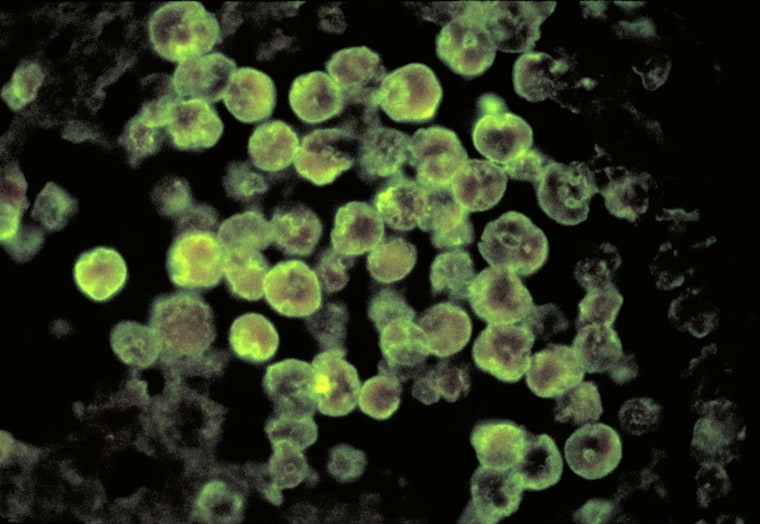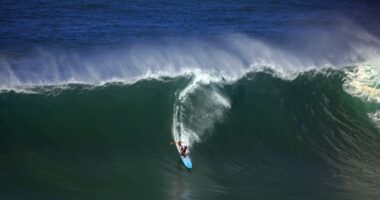A Nevada boy has died after he was infected with a rare brain-eating amoeba that he may have been exposed to at Lake Mead, state health officials announced Wednesday.
The boy, described as a Clark county resident under the age of 18, died from Naegleria fowleri, the Southern Nevada Health District said in a news release.
The health district said the child may have been exposed at the Arizona side of Lake Mead, which straddles the Nevada border, at the beginning of October and he began to develop symptoms “approximately a week later.”
NBC News has reached out to park officials for comment.
Naegleria fowleri is a “free-living microscopic” amoeba commonly found in warm freshwater — such as lakes and rivers — or, more rarely, in inadequately chlorinated swimming pools or heated and contaminated tap water, according to the Centers for Disease Control and Prevention.

The CDC notified the Health District that Naegleria fowleri was confirmed as the cause of the patient’s illness.
The amoeba infects people by “entering the body through the nose and traveling to the brain,” the Southern Nevada Health District said. “The infection is extremely rare, and almost always fatal.”
The news release explained how the amoeba affects the body. The amoeba infection causes primary amebic meningoencephalitis, a brain infection with symptoms of headache, fever, nausea or vomiting and progresses to a stiff neck, seizures, and coma and can lead to death. Symptoms usually begin about five days after infection.
“My condolences go out to the family of this young man,” District Health Officer Dr. Fermin Leguen said in a statement. “While I want to reassure the public that this type of infection is an extremely rare occurrence, I know this brings no comfort to his family and friends at this time.”
The CDC recommends avoiding jumping or diving into bodies of warm fresh water during the summer, to hold one’s nose shut or keep one’s head above water in warm fresh water and to avoid putting one’s head underwater in hot springs or other untreated geothermal waters to avoid contracting the organism.
Source: | This article originally belongs to Nbcnews.com










